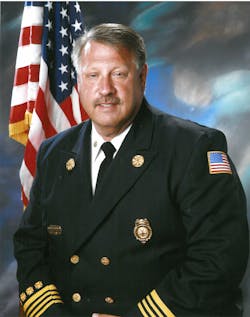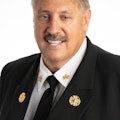When I worked in St. Louis many moons ago, I can remember a new paramedic coming on the job. He performed well in his academy class, and there was not a hint that anything was wrong, that was, until he was assigned to an ambulance.
On his first day, he and another paramedic were dispatched to a motorcycle accident. The motorcyclist had a broken tibia/fibula. It was one of those gross fractures where the lower leg is going one way, and it suddenly makes a right turn and goes the other way. No doubt it hurts and it does not look pretty. Reducing the fracture to splint can be challenging, and with the fractured bone ends rubbing against each other, the patient yells even more until you can minimize the movement of the bones.
The new paramedic rode in the back with the conscious patient as the other paramedic drove the ambulance to the emergency room of a local trauma center.
They unloaded the patient on the stretcher from the ambulance and took him into the ER. They moved the patient to one of the trauma rooms, and the new paramedic gave the patient report to the trauma team while the other paramedic moved the stretcher back to the ambulance where he proceeded to clean the stretcher and the back of the ambulance. As paramedic partners traditionally do, while one was getting the ambulance ready, the other paramedic remained behind to complete the patient care report.
After the paramedic who was getting the ambulance ready for the next call finished, he went back inside the ER. He did not see the new paramedic. He just assumed he was off in some corner writing the report. He looked in the patient’s room but did not find his partner. He looked everywhere in the ER and even went to the cafeteria thinking he went to get something to eat. He waited in the ER thinking his partner would show up, but he was gone.
After about an hour, he called his captain to tell him that he could not find the new paramedic. After talking to his captain, the paramedic started asking hospital staff if they had seen his partner. Eventually, a security guard told him he watched the paramedic walk down a hallway that led to the front of the hospital and never saw him come back.
As it turns out, the new paramedic had realized after seeing the broken leg that the job was not for him. He was done. He walked out of the hospital, caught a bus that took him close to the fire station, got in his car and left for home, never to return again. He didn't bother to call anyone.
I wondered how one fails to realize when they are in paramedic school—doing clinicals, doing ride-alongs, and maybe practicing skills on cadavers—that this job is not for them. Maybe he tried it for as long as he could and reached his breaking point. Maybe it was a profession he really did not want to choose but was pressured by a parent or spouse.
Doing EMS takes a special and unique person. You will see things that others simply don’t believe—stories that are so bizarre that you simply cannot make them up.
Your patience will be tried with the innocuous things that people call 9-1-1 for—and then they seem to demand more than the truly sick and injured patients.
Many will not end their careers doing EMS. They will get injured and get pensioned off; some will be promoted; others will obtain similar or like professional training, such as nursing or respiratory therapy; or they will get out of the profession all together.
Doing and performing EMS takes a major commitment and dedication. I once heard a joke that anyone who does EMS needs to have a bladder that expands to the size of a Winnebago water tank because it may be a while before you can go to the bathroom after running back-to-back calls.
Another joke speaks to the seasoned paramedic passing on the green stuff on the buffet table because they are pretty sure they suctioned it from a patient earlier in the day.
Over the years, I have worked with many wonderful and fantastic people who have chosen this profession. Some had to leave much earlier than they anticipated, and others had a long and distinguished career.
Either way, they were capable of doing something that many others cannot do, and the something they did was done with honor and made a difference. If you’re in this profession, count yourself in a unique group.
About the Author
Gary Ludwig
GARY LUDWIG has served in three fire departments over his career: St. Louis, Memphis, and Champaign, IL. His fire, EMS and rescue career spanned a total of 46 years, and he has been a paramedic for over 44 years. Ludwig served as president of the International Association of Fire Chiefs in 2019-20. He has a Master’s degree in Business and Management, has written over 500 articles for professional fire and EMS publications and is the author of seven books.
Connect with Gary
Email: [email protected]
Facebook: Gary Ludwig
Twitter: @ChiefGaryLudwig
Website: garyludwig.com

